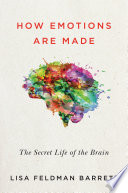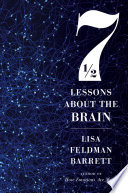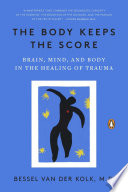📚 3 Books mentioned in "Dr. Lisa Feldman Barrett: How to Understand Emotions | Huberman Lab Podcast" of Huberman Lab

Podcast: Huberman Lab
Episode: Dr. Lisa Feldman Barrett: How to Understand Emotions | Huberman Lab Podcast
Published on October 16, 2023
Here’s a list of all the books mentioned in this episode. Click on the links to watch specific excerpts on YouTube and feel free to purchase the books if they caught your interest!

How Emotions Are Made
Buy How Emotions Are Made by Lisa Feldman Barrett on Amazon
The first one is entitled 'How Emotions Are Made,' and the second book, which includes information about emotions but extends beyond that, is entitled 'Seven and a Half Lessons About the Brain.'
In this segment, Andrew Huberman highlights the book 'How Emotions Are Made' by Lisa Feldman Barrett, referring to it as one of her two excellent works on the subject of emotions in the brain, which sets the stage for the upcoming discussion on emotions in this episode.
The book, "How Emotions Are Made," was written for her and for myself because it encapsulated the knowledge I wanted her, and others, to understand about emotions.
Lisa Feldman Barrett discusses her book 'How Emotions Are Made,' sharing that she wrote it for both herself and her daughter to convey important knowledge about emotions.

Seven and a Half Lessons about the Brain
Buy Seven and a Half Lessons about the Brain by Lisa Feldman Barrett on Amazon
The first one is entitled 'How Emotions Are Made,' and the second book, which includes information about emotions but extends beyond that, is entitled 'Seven and a Half Lessons About the Brain.'
Andrew Huberman refers to 'Seven and a Half Lessons About the Brain' as the second book by Lisa Feldman Barrett, highlighting that it contains information on emotions while also exploring broader topics, during the introduction of the episode.

The Body Keeps the Score
Buy The Body Keeps the Score by Bessel A. Van der Kolk on Amazon
There’s a catchy book title, but with all due respect to, I think, the important work of Vander, that oversimplification led folks to believe their back pain was trauma and not all trauma is somaticized.
Dr. Lisa Feldman Barrett discusses the oversimplification of trauma that comes from the popular book title "The Body Keeps the Score." She emphasizes her belief in understanding the brain's role in the experience of trauma, arguing that not all trauma is necessarily linked to physical symptoms.
